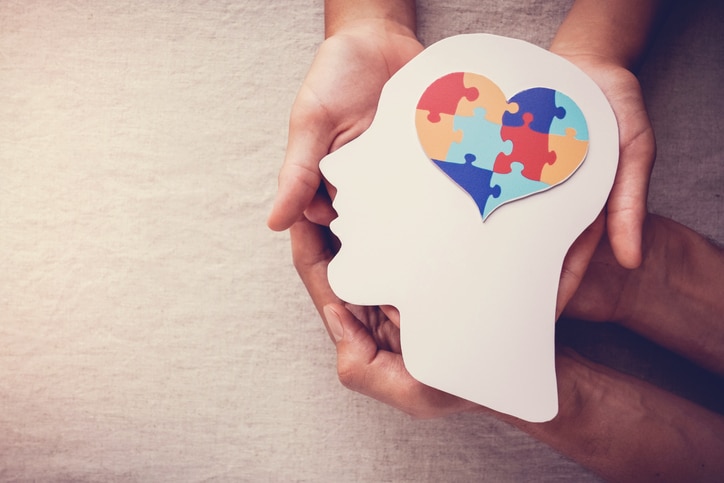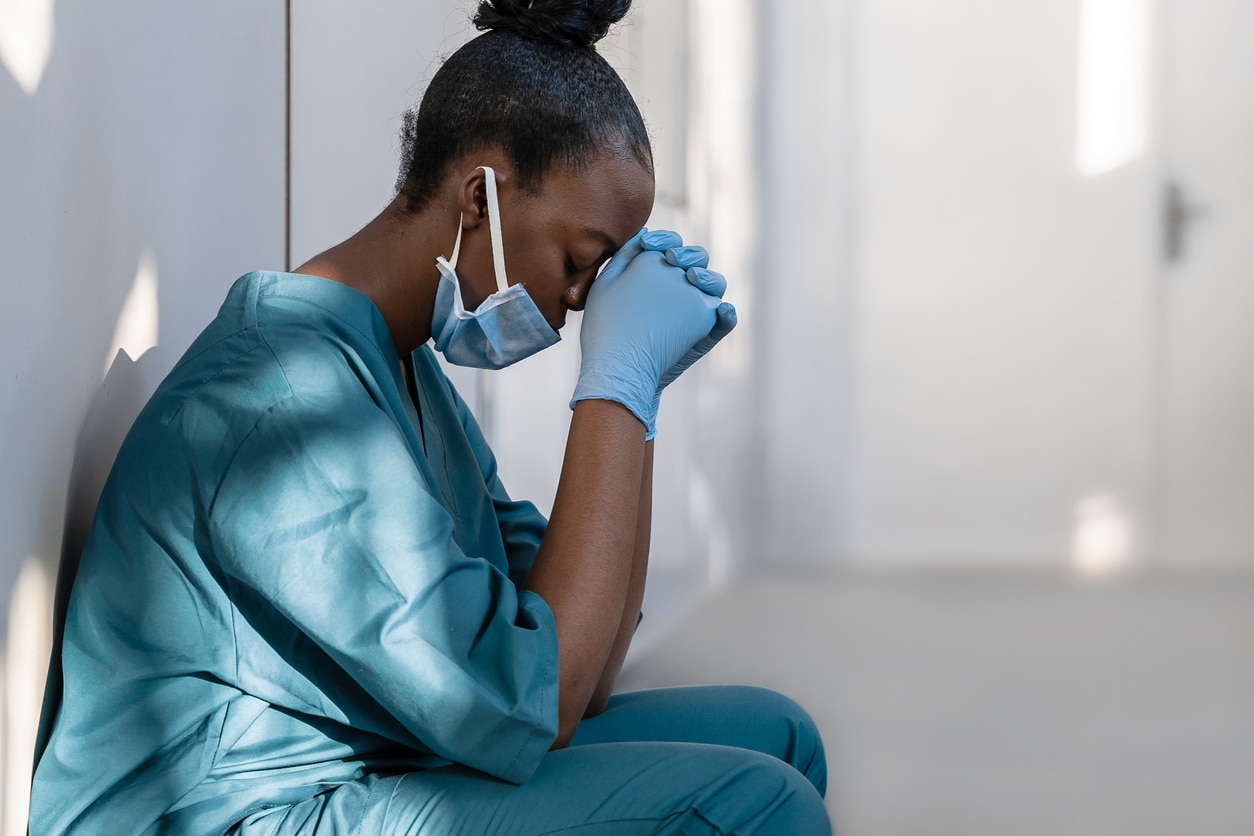By Christa Banister
As social distancing, COVID pods, masking, the “new normal,” and regular reminders to wash your hands and not hug or high-five people became part of our pandemic vernacular, another message also began trickling into the mainstream: We’re all in this together.
Piggybacking off that idea, the importance of mental health awareness during all the uncertainty — and talking about how you’re really doing — became a new focus in a nationwide radio, TV, and digital PSA campaign.
It’s been suggested that COVID-19 has helped in overcoming the stigma of mental illness, with people opening up about their struggles socially, economically, physically, emotionally, and otherwise. However, the heavy toll that COVID has taken on the helpers — the medical and mental health professionals who served tirelessly at the height of the pandemic and since — shows there’s still work to be done.
More than 70% of emergency physicians agreed there is a stigma in their workplace around seeking help.
Physician Mental Health
To wit, more than 87% of emergency physicians reported feeling more stress since the start of the pandemic, while 72% admitted they’re experiencing more on-the-job burnout in what’s already a stressful line of work.
Perhaps the most alarming reality of all is when asked about whether they felt comfortable seeking treatment for mental health concerns, 45% of the nation’s emergency physicians said no. And that figure doesn’t include other frontline workers like nurses, EMTs, and crisis counselors. Despite how far we’ve come in terms of highlighting the importance of mental health awareness, the stigma in healthcare still prevents many in the medical community from seeking the help they need.
Mental Health in Healthcare
Given that doing hard things is part of their job description day in and day out, it was probably tempting for some to assume that nothing really rattles medical professionals who work overtime and beyond when needed — not even a global pandemic that has claimed more than 600,000 US lives.
But if we’ve learned anything from the seemingly endless swirl of superhero movies, the humans behind the uniforms aren’t invulnerable. And the harsh realities of working during the heat of COVID-related trauma pushed their own mental health and day-to-day life concerns to the back burner.
In addition to dealing with a lack of protective gear and supplies while accepting the inability to help everyone as quickly as they wished, the superstars of the healthcare industry also faced the constant uncertainty of whether they — or their loved ones — would contract the virus.
As if that wasn’t already enough, many medical workers also had the harrowing task of helping patients say goodbye to their loved ones via Facetime since in-person visits weren’t possible.
For many, including 49-year-old Lorna Breen, MD, who worked in New York-Presbyterian Allen Hospital, facing death in massive numbers during COVID’s first wave, was simply too much. In a report featured on Today, her family said they believe her suicide could’ve been avoided.

As a result, they started the Dr. Lorna Breen Heroes Foundation which they hope will reduce the stigma around health care professionals seeking mental health services. Additionally, they want to fund programs dedicated to reducing the burnout that goes hand in hand with the profession and improving the overall well-being of frontline health workers.
In a poll released in October 2020 by the American College of Emergency Physicians (ACEP) and Morning Consult, more than 70% of emergency physicians agreed there is a stigma in their workplace around seeking help. A large number specifically mentioned a fear of losing their job or medical license.
Some states reinforce the stigma by asking questions about whether someone has been treated for mental illness on the licensing application — yet another reason to hold back about their struggles rather than seek help that could, quite literally in some cases, save their lives.
Noting the more compassionate questions regarding mental health on the Mississippi licensing application — ones that reinforce that taking care of yourself helps you take care of others — Breen’s family hopes that overcoming the stigma of mental illness becomes the norm in the United States.
When asked about whether they felt comfortable seeking treatment for mental health concerns, 45% of the nation’s emergency physicians said no.
Help is Here for You
If you or someone you love is a medical or mental health professional who is struggling with mental health concerns, there is hope at The Meadows where treating the whole person is always a priority. Your career does not have to be a roadblock to getting help. We have a variety of treatment options available to fit your needs, including workshops and inpatient and outpatient programs, virtual included.
We understand the importance of mental health because it affects how we think, feel, and act. It also dictates how we respond to stress, relate to others, and make important choices. Left untreated, everything from prolonged depression and anxiety to post-traumatic stress disorder (PTSD) and bipolar disorder can debilitate you and seriously impact your quality of life.
Let us help take care of you so you can be at your best when taking care of others. Contact the caring professionals at The Meadows today.

